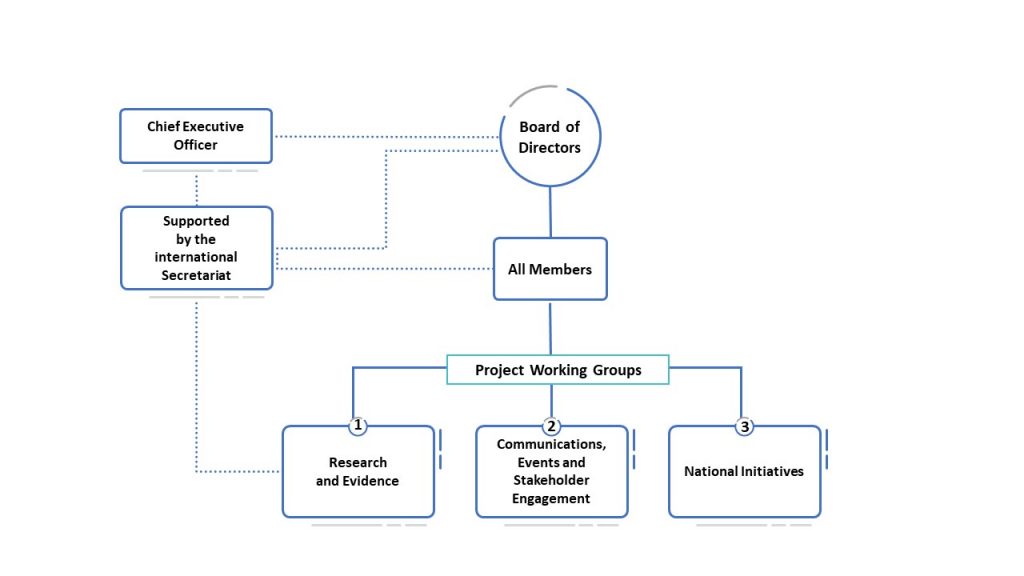Governance structure
All.Can international, launched in December 2016 as multi-stakeholder initiative, acquired legal status as a not-for-profit organisation (ASBL) in Belgium in May 2020.
All.Can’s robust governance structure guarantees its independence, transparency* and multi-stakeholder engagement in the decision-making processes.

The decision-making function of All.Can is performed by the international Board of Directors, while specific activities are overseen by Working Groups comprising All.Can international members. All.Can’s work and activities are led by the Chief Executive Officer and supported by the All.Can international Secretariat.
Members
All.Can international is led by its members. Members are responsible for all major decisions linked to the overall group’s strategic plan, its scope of activities, governance and approval of new members. Our members have ultimate control over our work programme, with the Board of Directors playing the executive role.
There are two main types of member. General members include non-profit organisations or individuals who wish to contribute to All.Can’s programme of activities. Funding partners include for-profit companies who are members of All.Can international and also contribute, either financially or in kind (non-financially).
All members’ opinions and contributions are valued – and considered equal – irrespective of membership status.
Funding principles
All.Can international is funded by several funding partners, who provide a given financial contribution to the association to fund the entire All.Can initiative. All.Can also receives funds for ad hoc projects from the European Union.
All.Can’s funders include: Bristol Myers Squibb, Roche, MSD, Johnson & Johnson, Illumina, Amgen, BD, Astellas, Daiichi Sankyo, MNI, and EFPIA, among other funding means.
Geographical scope
All.Can international operates at an international level. National All.Can initiatives also exist as independent initiatives in several countries across Europe, America, Asia and Australia. These national initiatives are part of the All.Can family but each has its own governance structure. They may use the All.Can branding as long as they agree in writing to adhere to the All.Can international Terms of Reference.
Editorial control
All.Can international operates a strict editorial control policy, with complete editorial control resting with all members who contribute to any given publication or output.
All.Can international’s activities and their outputs aim to accurately represent a consensus among all members – with ultimate editorial control residing with the Board of Directors. No members have any special editorial status and all efforts are made to give equal representation to all members’ views.
Please note: All.Can international was established in December 2016 for research and education purposes only. It does not promote or endorse the products of any of its funding partners in any of its materials or communications.